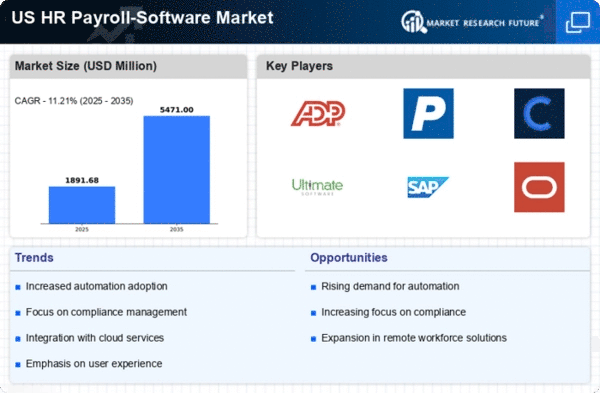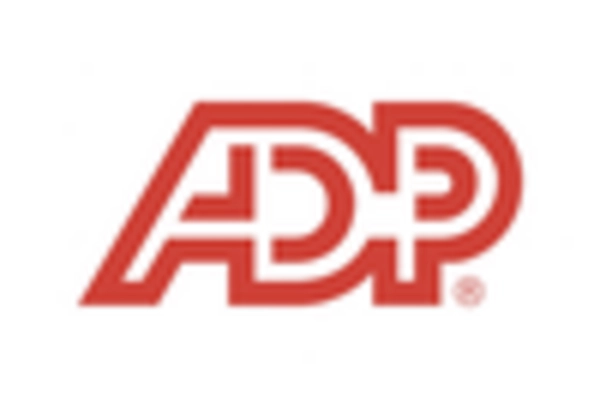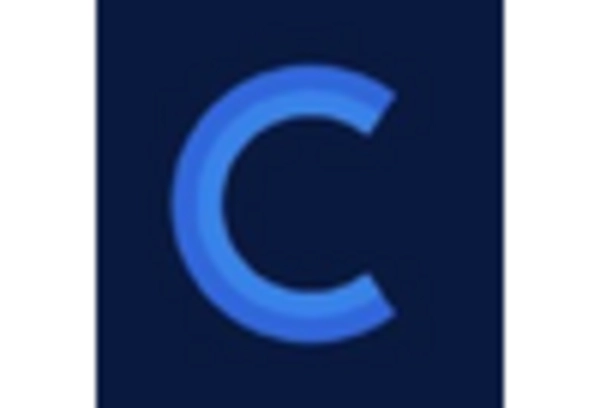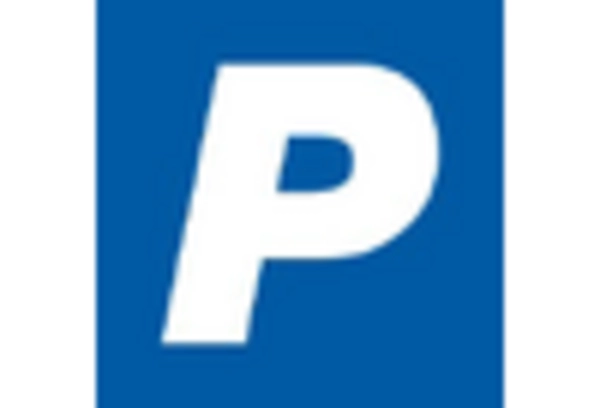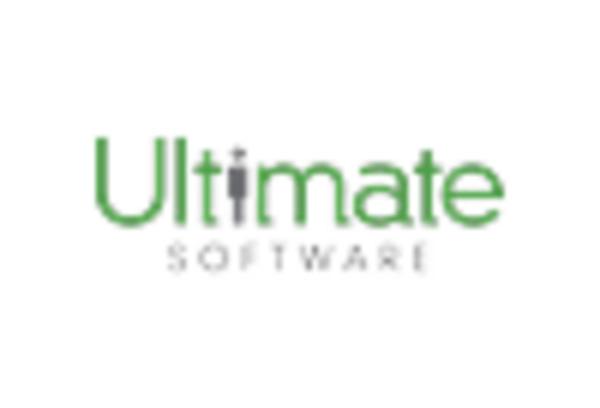Integration with Other HR Systems
The The US HR Payroll-Software market is increasingly driven by the need for seamless integration with other HR systems. is increasingly driven by the need for seamless integration with other HR systems. Organizations are seeking solutions that can easily connect with applicant tracking systems, performance management tools, and employee self-service portals. This integration facilitates a more holistic approach to human resource management, allowing for better data flow and improved decision-making. Research suggests that companies with integrated HR systems experience a 25% increase in operational efficiency. As businesses recognize the benefits of interconnected systems, the demand for versatile hr payroll-software that can integrate with existing platforms is likely to grow, enhancing market dynamics.
Regulatory Changes and Compliance Needs
The The US HR Payroll-Software market is significantly influenced by the evolving landscape of regulatory changes and compliance requirements. is significantly influenced by the evolving landscape of regulatory changes and compliance requirements. Organizations must navigate a complex array of federal, state, and local regulations, which can vary widely. The need for software that ensures compliance with tax laws, labor regulations, and reporting requirements is paramount. In fact, a survey indicated that 70% of HR professionals consider compliance features a critical factor when selecting payroll software. As regulations continue to change, the demand for adaptable and compliant hr payroll-software solutions is expected to rise, propelling market growth and innovation.
Focus on Employee Experience and Engagement
The The US HR Payroll-Software market is increasingly focusing on enhancing employee experience and engagement. is increasingly focusing on enhancing employee experience and engagement. Organizations are recognizing that payroll is not just a transactional process but a critical component of employee satisfaction. Features such as self-service portals, mobile access, and personalized communication are becoming essential. A study found that companies prioritizing employee experience see a 15% increase in retention rates. As businesses strive to create a more engaging work environment, the demand for hr payroll-software that prioritizes user experience is likely to rise, influencing market trends and driving innovation.
Shift Towards Remote Work and Global Workforce
The The US HR Payroll-Software market is adapting to the shift towards remote work and the increasing prevalence of a global workforce. is adapting to the shift towards remote work and the increasing prevalence of a global workforce. Companies are now managing employees across various locations, necessitating payroll solutions that can handle diverse tax regulations and currency conversions. This trend has led to a growing demand for cloud-based payroll systems that offer flexibility and accessibility. Data indicates that organizations utilizing cloud payroll solutions can save up to 20% in operational costs. As remote work becomes more entrenched in corporate culture, the hr payroll-software market is poised for growth, driven by the need for adaptable and comprehensive payroll solutions.
Technological Advancements in Payroll Processing
The The US HR Payroll-Software market is experiencing a surge in technological advancements that streamline payroll processing. is experiencing a surge in technological advancements that streamline payroll processing. Innovations such as machine learning and advanced analytics are enhancing the efficiency of payroll systems. These technologies enable organizations to automate repetitive tasks, reducing the time spent on payroll management. According to recent data, companies that adopt advanced payroll solutions can reduce processing time by up to 30%. This shift not only improves accuracy but also allows HR departments to focus on strategic initiatives rather than administrative tasks. As businesses increasingly recognize the value of technology in payroll, the demand for sophisticated hr payroll-software solutions is likely to grow, driving market expansion.


